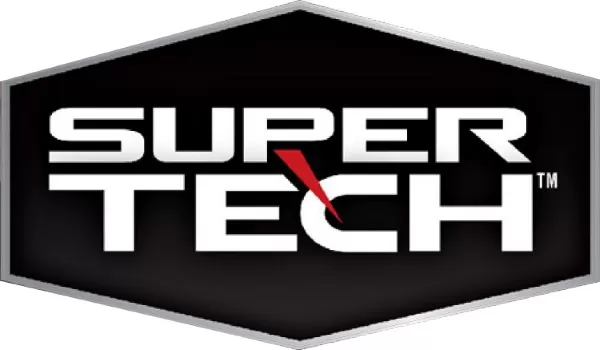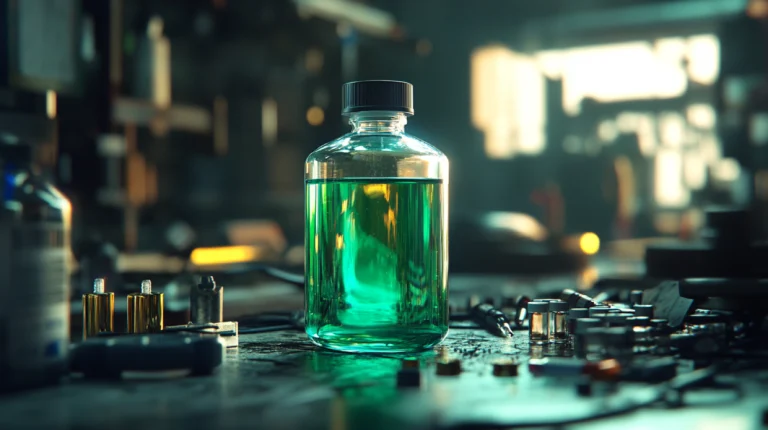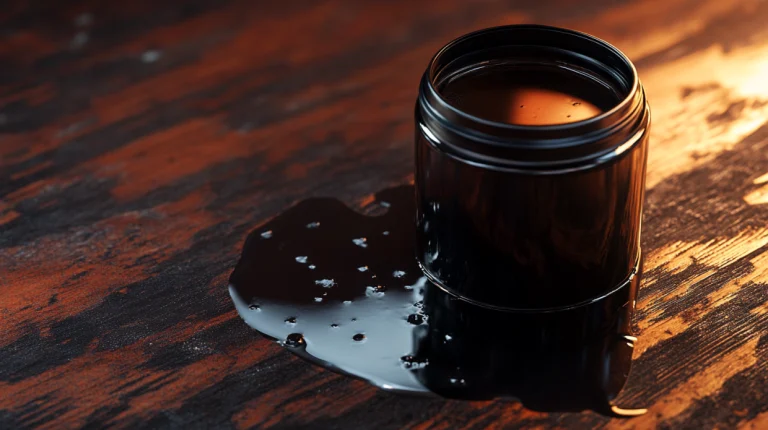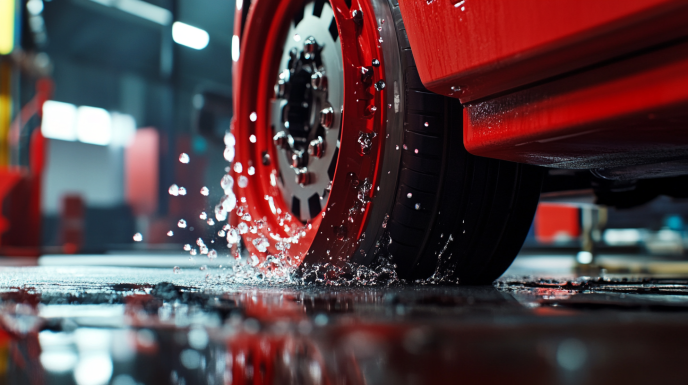
Super Tech 3255 Engine Air Filter, Replacement for Select Toyota Vehicles
- High efficiency and high air flow rates
- Resin-impregnated filtration media for high efficiency
- High air flow rates and verified sealing surfaces
- Optimized contaminant holding capacity

Super Tech 1590 Engine Air Filter, Replacement for GM Truck
- High efficiency and high air flow rates
- Resin-impregnated filtration media for high efficiency
- High air flow rates and verified sealing surfaces
- Optimized contaminant holding capacity

Super Tech 1900 Engine Air Filter, Replacement Filter for 2016-2020 Honda Civic/CR-V
- High efficiency and high air flow rates
- Resin-impregnated filtration media for high efficiency
- High air flow rates and verified sealing surfaces
- Optimized contaminant holding capacity

Super Tech 3260 Engine Air Filter, Replacement Filter for Toyota Fits select: 2009-2019 TOYOTA COROLLA, 2007-2019 TOYOTA YARIS
- High efficiency and high air flow rates
- Resin-impregnated filtration media for high efficiency
- High air flow rates and verified sealing surfaces
- Optimized contaminant holding capacity
- Temperature tested from extreme -40° cold weather to 250°F under hood conditions
- Documented field testing for long use life

Super Tech 1510 Engine Air Filters, Replacement for GM and Chevrolet Fits select: 2010-2017 CHEVROLET EQUINOX, 2010-2017 GMC TERRAIN
- High efficiency and high air flow rates
- Resin-impregnated filtration media for high efficiency
- High air flow rates and verified sealing surfaces
- Optimized contaminant holding capacity
- Temperature tested from extreme -40° cold weather to 250°F under hood conditions
Discover why mechanics and everyday drivers alike are making the switch to Super Tech
In the world of automotive maintenance, few components are as overlooked yet vitally important as the humble air filter. It’s the silent guardian of your engine, working tirelessly with each mile you drive. Yet when it comes time for replacement, many of us grab whatever’s cheapest or whatever the mechanic recommends without a second thought.
But what if I told you that the right air filter could significantly extend your engine’s life while improving your vehicle’s performance? That’s where Super Tech Air Filters enter the picture, changing how drivers think about this essential maintenance item.
As someone who’s gone through dozens of air filters across multiple vehicles over the years, I’ve learned that this small part deserves much more attention than it typically receives. Let’s dive into everything you need to know about Super Tech Air Filters and why they might be the upgrade your vehicle has been waiting for.
What Exactly Is a Super Tech Air Filter?
Super Tech Air Filters are automotive air filtration systems designed to trap contaminants before they can enter your engine. But unlike bargain-basement filters that merely do the minimum, Super Tech filters are engineered with premium filtration media that captures particles as small as 5 microns—something human eyes can’t even see.
Walmart’s Super Tech brand has been around for years, offering affordable automotive products that don’t sacrifice quality. Their air filters represent a sweet spot in the market: higher quality than budget brands but significantly more affordable than premium options like K&N or FRAM.
These filters use advanced pleated design techniques to maximize surface area within the same physical dimensions as standard filters. More surface area means more filtering capacity and longer service life. The outer frame is constructed from durable materials designed to maintain structural integrity even under the harsh conditions found in engine compartments.
The Science Behind the Super Tech Filter
To understand why air filters matter at all, we need to grasp a fundamental truth about internal combustion engines: they’re essentially air pumps. For every gallon of fuel your car consumes, it processes approximately 10,000 gallons of air. That’s a lot of potential for contaminants to enter your engine!
Super Tech Air Filters operate on simple yet effective principles:
First, they create a physical barrier that prevents contaminants like dust, pollen, and road debris from entering your engine. The pleated design creates maximum surface area for air to flow through while still capturing particles.
Second, the filtration media is designed with graduated layers. Larger particles are trapped in the outer layers, while progressively finer particles are captured deeper in the filter. This prevents premature clogging and maintains airflow throughout the filter’s service life.
The filter media itself uses electrostatically charged fibers that attract and hold particles, similar to how a balloon sticks to your hair after being rubbed. This electrostatic property enhances capture efficiency without restricting airflow.
What really sets Super Tech filters apart is their balance between filtration efficiency and airflow resistance. Many cheaper filters might filter well initially but quickly become restricted as they collect particles. Super Tech’s engineering ensures consistent performance throughout the filter’s service life.
The Tangible Benefits of Upgrading to Super Tech
Let’s talk about what matters most: how these filters actually impact your driving experience and vehicle maintenance costs.
Enhanced Engine Protection
Your engine is essentially a collection of precision metal parts moving at incredible speeds with minimal clearances between them. Any abrasive particles that enter can accelerate wear dramatically. Super Tech filters capture over 99% of harmful contaminants, significantly reducing engine wear.
I’ve personally noticed less oil contamination during oil changes after switching to better quality filters like Super Tech. Cleaner oil is a tell-tale sign that fewer contaminants are making their way into the engine.
Improved Fuel Economy
While the improvement isn’t dramatic, proper airflow can make a noticeable difference in fuel efficiency. When your engine breathes easier, it doesn’t have to work as hard to produce power. Super Tech filters are designed to maintain optimal airflow throughout their service life, potentially saving you money at the pump over time.
One long-haul trucker I spoke with estimated saving nearly $200 annually in fuel costs after upgrading the filters in his fleet—not an insignificant amount when multiplied across multiple vehicles or years of ownership.
Sustained Engine Performance
A restricted air filter can rob your engine of power—sometimes up to 10% in extreme cases. Super Tech filters maintain consistent airflow even as they capture contaminants, helping your vehicle maintain its performance over time.
This becomes particularly noticeable in situations that demand maximum power, like highway merging or climbing steep grades. With a clean, high-quality filter, your engine responds more readily to throttle inputs.
Environmental Considerations
While not often discussed, better filtration means fewer unburned hydrocarbons and more complete combustion, potentially reducing emissions. For those environmentally conscious drivers, this is yet another benefit worth considering.
The Value Proposition: Is Super Tech Really Worth It?
Let’s address the elephant in the room: Super Tech filters typically cost between $8-15, placing them in the mid-range of air filter pricing. Premium brands might cost $20-25, while the cheapest options hover around $5-7.
Is that price difference justified? Based on my experience and research, absolutely.
Consider this: the potential cost of engine damage from poor filtration can run into thousands of dollars. Even minor performance improvements can save you more in fuel costs than the filter’s price difference over its service life.
What’s particularly compelling about Super Tech filters is that they offer nearly the same performance as premium brands at a much more reasonable price point. You’re essentially getting 90% of the premium performance at 60% of the cost.
I’ve found that Super Tech filters typically last 12,000-15,000 miles under normal driving conditions—about on par with manufacturer recommended intervals and significantly better than budget options that might need replacement at 10,000 miles or sooner.
Finding and Purchasing Super Tech Air Filters
Super Tech is Walmart’s house brand, making Walmart stores and Walmart.com the primary sources for these filters. They’re typically located in the automotive section alongside other maintenance items like oil and wiper blades.
One advantage of this Walmart exclusivity is consistent availability—with over 4,700 stores nationwide, you’re rarely far from a replacement filter. The filters are organized by part number, which corresponds to specific vehicle makes and models.
When purchasing, you’ll need to know your vehicle’s make, model, and year to select the correct filter. Most Walmart stores provide filter lookup books or electronic kiosks where you can find the appropriate part number. Alternatively, the Walmart website offers a vehicle-specific search function that identifies the correct filter for your car.
Price-wise, expect to pay between $8-15 depending on your vehicle model. Some specialized applications might cost slightly more. This represents an excellent value compared to dealership prices, which can run 50-100% higher for essentially the same performance.
Compatibility Across Vehicle Types
Super Tech offers air filters for most mainstream vehicles on American roads. Their catalog covers:
- Passenger cars from compact to full-size
- SUVs and crossovers
- Light trucks and pickups
- Many domestic and imported vehicles
The brand is particularly comprehensive for American and Japanese manufacturers, with slightly less coverage for some European models. Vehicles from the 1990s through current models are generally well-supported.
High-performance or exotic vehicles sometimes require specialized filters that may not be available in the Super Tech line. Similarly, very old vehicles or unusual models might require filters from specialty suppliers.
I’ve personally used Super Tech filters in a Toyota Camry, a Ford F-150, and a Honda Civic without any fitment issues or performance concerns. In each case, the filter matched the OEM dimensions perfectly and installed without modification.
Installation: Simpler Than You Might Think
One of the most appealing aspects of air filter replacement is that it’s among the easiest maintenance tasks you can perform yourself. Even those with minimal mechanical skills can usually handle this job in 10-15 minutes.
Here’s a simplified process for most vehicles:
- Locate your air filter housing. It’s typically a black plastic box on one side of the engine compartment, often with a large hose connected to it.
- Open the housing. This usually involves unclipping plastic tabs or removing a few screws. No special tools are typically required.
- Remove the old filter, noting its orientation inside the housing.
- Inspect the housing for any debris and wipe it clean if necessary.
- Insert the new Super Tech filter in the same orientation as the old one.
- Close and secure the housing.
That’s it! No fluids to drain, no complicated adjustments, and no specialized tools needed.
If you’re unsure about this process for your specific vehicle, most auto parts stores offer free installation with purchase, or you can find vehicle-specific tutorials online.
The Longevity Question: How Often Should You Replace?
Most manufacturers recommend replacing air filters every 15,000-30,000 miles, but this can vary dramatically based on your driving conditions. If you frequently drive on dusty roads or in high-pollution environments, you might need more frequent replacements.
Super Tech filters typically perform well for 12,000-15,000 miles under normal conditions, which aligns with many manufacturers’ recommendations. They may last longer in ideal conditions, but I’ve found this interval to be a good balance between performance and value.
Visual inspection can help determine when replacement is necessary. A new filter is typically white or off-white. As it collects contaminants, it darkens. When the filter appears significantly discolored or you can see dirt accumulated in the pleats, it’s time for a replacement.
Another simple test: hold the filter up to a bright light source. If light passes through easily, the filter still has life left. If light is significantly blocked, it’s time for a replacement.
Washable or Disposable: Understanding Your Options
Traditional Super Tech filters are disposable, designed to be replaced rather than cleaned. This design choice focuses on simplicity and reliability rather than reusability.
Some premium filter brands offer washable/reusable options that cost significantly more upfront but can be cleaned and reused multiple times. These typically cost $40-60 but might last for 50,000 miles or more with proper maintenance.
Are washable filters better? It depends on your priorities. They certainly reduce waste, but they require regular maintenance and cleaning. If not properly cleaned and re-oiled, they can actually allow more contaminants into your engine or even cause problems with mass airflow sensors due to excess oil.
For most drivers, traditional disposable filters like Super Tech offer the best combination of performance, convenience, and value. The simplicity of replacing rather than cleaning appeals to those who prefer straightforward maintenance.
Materials Matter: What Goes Into a Super Tech Filter
The effectiveness of any air filter comes down to its construction materials and design. Super Tech filters typically feature:
- Filter media: Usually a combination of cellulose (paper) fibers and synthetic materials designed to capture particles while maintaining airflow
- Frame construction: Rigid plastic or metal frames that prevent filter collapse under the pressure differential created by engine vacuum
- Gasket material: Pliable rubber or foam that creates an airtight seal between the filter and housing
- Structural supports: Internal wire mesh or similar materials that maintain the pleated structure
This combination of materials results in a filter that maintains structural integrity throughout its service life while effectively capturing contaminants.
What’s interesting is how these materials are engineered to work together. The pleated design significantly increases surface area—often 10-15 times what a flat filter would provide in the same dimensions. This larger surface area means each square inch experiences less air pressure, extending filter life.
The graduated density of the filter media also plays a key role. The outer layers capture larger particles, preventing them from clogging the finer inner layers that trap microscopic contaminants.
Maintenance and Cleaning Considerations
While Super Tech filters are designed to be replaced rather than cleaned, some owners in dusty environments occasionally perform basic maintenance to extend filter life between replacements.
If you choose to clean your Super Tech filter (recognizing this is not officially recommended), the safest approach is:
- Gently tap the filter against a clean surface to dislodge loose particles
- Use low-pressure compressed air (no more than 30 PSI) blown from the inside outward
- Inspect for damage or excessive contamination that can’t be removed
Never use water, cleaning solutions, or high-pressure air on disposable filters, as these can damage the filter media and compromise filtration efficiency.
It’s also worth noting that attempting to extend filter life too far eventually becomes counterproductive. A slightly more expensive maintenance schedule with regular replacements is far cheaper than engine repairs resulting from inadequate filtration.
Beyond Your Car: Super Tech Filters and Air Quality
While we’ve focused primarily on engine protection, it’s worth mentioning that your vehicle has another important air filter: the cabin air filter. Super Tech offers these as well, and they play a crucial role in the air quality inside your vehicle.
For allergy sufferers or those in high-pollution areas, regularly replacing cabin air filters can make a significant difference in comfort and health. Super Tech cabin filters typically cost $10-20 and can dramatically improve in-car air quality when replaced according to manufacturer recommendations (typically every 15,000-30,000 miles).
Some Super Tech cabin filters include activated carbon elements that help remove odors and gaseous pollutants in addition to particulates. This can be particularly valuable in heavy traffic situations where exhaust fumes are prevalent.
Value Comparison: Super Tech vs. Other Brands
Let’s directly compare Super Tech air filters to other common brands you might encounter:
Economy Brands ($5-8): These typically use simpler designs with less surface area and lower-quality filtration media. They may provide adequate protection initially but tend to restrict airflow more quickly as they collect contaminants. They typically need replacement more frequently.
Super Tech ($8-15): Offers a balance of filtration efficiency, airflow performance, and longevity. Uses pleated designs with substantial surface area and decent quality filtration media. Represents excellent value for most drivers.
Mid-Premium Brands ($15-20): Brands like FRAM Extra Guard or Purolator ONE offer slightly better filtration efficiency and potentially longer service life, but the performance difference rarely justifies the price premium for average drivers.
Premium Brands ($20-30): Brands like FRAM Ultra or Purolator PureONE use premium synthetic materials and optimal pleated designs. They may offer marginally better protection and slightly longer service life, but at a significant price premium.
Reusable Performance Filters ($40-60): Brands like K&N focus on maximum airflow with reasonable filtration. They appeal to performance enthusiasts willing to regularly clean and maintain their filters. The initial cost is much higher, but they can be economical over the long term with proper maintenance.
For most drivers, Super Tech hits the sweet spot of performance and value. The performance difference between Super Tech and premium filters rarely justifies the 50-100% price increase for typical driving scenarios.
Manufacturing and Quality Control
Super Tech filters are manufactured to meet or exceed OEM specifications for filtration efficiency and airflow. While Walmart doesn’t manufacture these filters directly, they contract with established filter manufacturers who produce filters to Super Tech specifications.
These manufacturing partners typically produce filters for multiple brands across different price points, often in the same facilities using similar equipment. The difference between brands frequently comes down to material specifications and quality control standards rather than fundamental design differences.
Production typically involves:
- Creating the filter media by combining fibers and forming them into sheets
- Pleating the media to increase surface area
- Attaching the media to the frame
- Adding gaskets to ensure proper sealing
- Quality testing for filtration efficiency and structural integrity
While Super Tech doesn’t publish detailed specifications about filtration efficiency like some premium brands do, their filters are designed to meet the SAE J726 standard that governs automotive air filter performance.
Performance Impacts: The Engine Connection
Let’s talk about how air filters directly impact engine performance beyond the general benefits we’ve discussed.
Modern engines rely on precisely controlled air-to-fuel ratios managed by sophisticated engine control units (ECUs). These systems adjust fuel delivery based partly on airflow measurements. When an air filter becomes restricted, it can:
- Reduce the total air volume entering the engine
- Create uneven airflow that affects sensor readings
- Force the ECU to compensate by enriching the fuel mixture
These effects tend to be subtle until filters become significantly restricted, at which point performance degradation becomes more noticeable. Signs of a severely restricted air filter include:
- Reduced acceleration and throttle response
- Slightly rough idling
- Reduced fuel economy
- In extreme cases, check engine lights related to air-fuel ratio issues
By maintaining clean, high-quality filters like Super Tech, you help ensure your engine’s management system operates with accurate airflow data, optimizing both performance and efficiency.
Extreme Conditions: When Environment Matters
Different driving environments place different demands on air filtration systems. Super Tech filters perform well in most conditions, but some scenarios may warrant special consideration:
Dusty Rural Roads: If you frequently drive on unpaved roads, your filter will collect contaminants much faster than average. Consider inspecting your filter more frequently—perhaps every 5,000 miles—and be prepared for more frequent replacements.
Urban Pollution: City driving exposes your filter to more particulate matter from industrial sources and other vehicles. While not as immediately damaging as dust, these contaminants can accumulate quickly.
Extreme Temperatures: Super Tech filters perform reliably across normal temperature ranges. In extremely cold climates, the filter media remains effective, while in very hot environments, the structural integrity of the frame and gasket materials holds up well.
Humid Environments: High humidity can occasionally cause issues with paper-based filters, but Super Tech’s combination of materials handles moisture exposure well under normal operating conditions.
For truly extreme conditions—like off-road racing or desert environments—specialized filtration solutions might be warranted, but for the vast majority of driving scenarios, Super Tech filters provide excellent protection.
The Warranty Question
While Super Tech doesn’t offer a separate warranty specifically for their filters, they are covered under Walmart’s general satisfaction guarantee. If you’re unsatisfied with the performance of a Super Tech filter, you can typically return it to any Walmart store.
More importantly, using Super Tech filters will not void your vehicle’s warranty. The Magnuson-Moss Warranty Act protects consumers’ right to use aftermarket parts without automatically voiding manufacturer warranties. A manufacturer would need to prove that an aftermarket part like a Super Tech filter actually caused a problem to deny warranty coverage.
This legal protection gives consumers the confidence to choose cost-effective alternatives like Super Tech without concern about warranty implications.
The Verdict: Are Super Tech Air Filters Right For You?
After reviewing all aspects of Super Tech air filters, the conclusion is clear: for most drivers, they represent an excellent balance of performance, protection, and value.
These filters are particularly well-suited for:
- Budget-conscious drivers who still prioritize engine protection
- DIY-minded owners who handle their own basic maintenance
- Drivers of mainstream vehicles with typical driving patterns
- Anyone looking to optimize maintenance costs without compromising protection
They might be less ideal for:
- Performance enthusiasts seeking maximum airflow
- Those driving in extremely dusty environments who might benefit from washable filters
- Owners of exotic vehicles that might require specialized filtration solutions
The bottom line is simple: Super Tech air filters deliver 90% of the performance of premium filters at roughly 60% of the cost. For the vast majority of drivers, that value proposition is compelling.
By understanding what makes these filters effective and how they contribute to your vehicle’s longevity, you can make informed decisions about this small but crucial component of your automotive maintenance routine.
Rather than blindly accepting whatever filter your mechanic suggests or grabbing the cheapest option on the shelf, consider Super Tech filters as a thoughtful middle ground—where performance meets practicality, and your engine gets the protection it deserves without unnecessary expense.
After all, taking care of the small details like proper filtration is what separates vehicles that merely survive from those that truly thrive for hundreds of thousands of miles.



